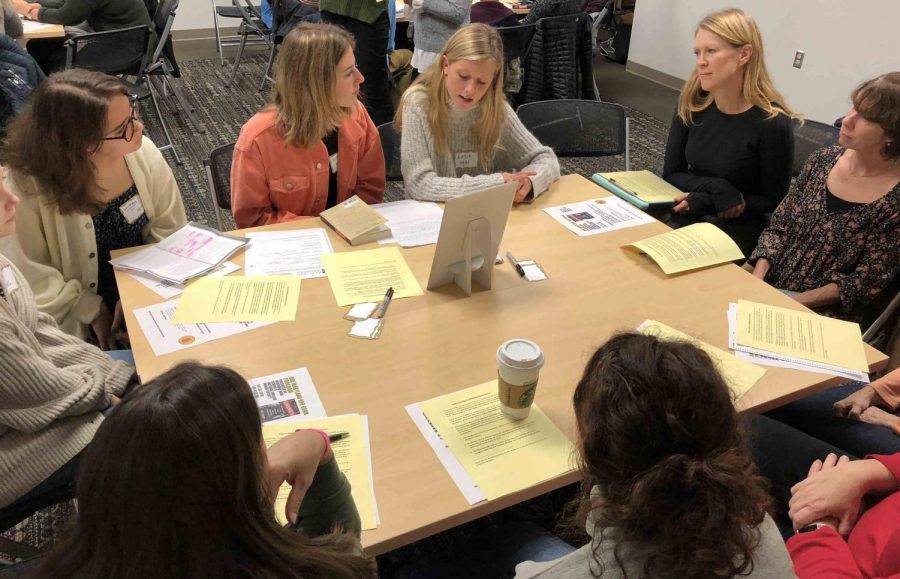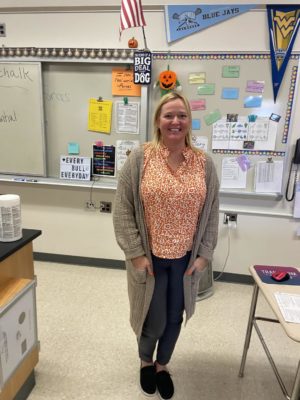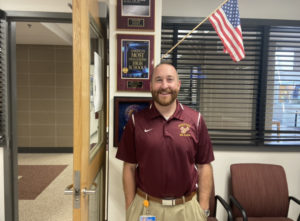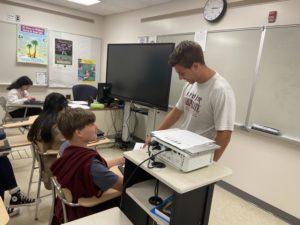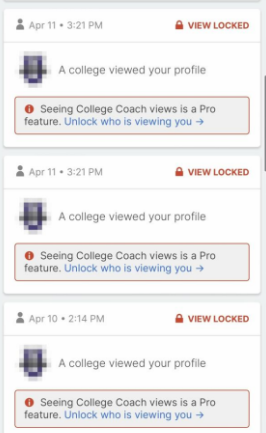NEHS members hold discussion for Bloodsworth
Victoria Westra (’20) asks questions to further the conversation about the book Bloodsworth. Members wrote questions before the book talk to be prepared to lead the group discussion.
February 6, 2019
The National English Honor Society held its second book discussion at the Hereford Library, on Oct. 25, 2018. The book that was discussed was Bloodsworth: The True Story of the First Death Row Inmate Exonerated by DNA. Not just the members of the honor society showed up; parents, grandparents, friends, teachers, and assistant principal, Ashleigh Hickman came as well.
The book’s focus is on the ex-inmate Kirk Bloodsworth, who was wrongfully accused of rape and first-degree murder of a nine-year-old girl in Rosedale, Maryland. He was sentenced to death, but was the first ever American to be exonerated post-conviction by DNA testing. By the time an appeal based on the evidence was underway, his sentence had been commuted to two consecutive life sentences. He was released from prison in 1993 and gained a full exoneration in 2004.
The One Maryland One Book is a program that promotes reading with discussions. One Maryland One Book selected Bloodsworth out of suggestions made by readers in Maryland based on this year’s theme: justice. The Hereford Chapter of National English Honor Society then held its own discussion on the book.
One of the advisers, Michelle Stachura comments on the benefits of having book discussions. “It is nice to have a reading of something that a large group is reading outside the school, [and] it is not assigned by the teacher. We are going to have a lot of different voices there…so it is nice to hear a conversation that is not just your traditional English class.”
The opinions vary between people, and the different inputs people give are important to listen to, which is what book discussions are all about, talking to others about a common subject.
Cecilia Millan (’20), Rachel Rowe (’20) and Sarah Bennett (’20) are members of the National English Honor Society. “It definitely changed my opinion of the whole justice system just reading the whole book and realizing what actually happen[ed] and how the trials can be miscalculated,” Millan (’20) said.
Rowe (’20) on the other hand, was affected by the fact that it was true. “For me Bloodsworth was a very different experience. I usually read a lot of fiction, so it was interesting to think about something that had such a real-life affect, and it wasn’t just a character we were talking about it, it was a real person,” Rowe (’20) said. “It was interesting to see how much the media had control over the whole court system, Bennett (’20) said. “Instead of the court system having control over the facts and just using facts instead of human emotion.”
The advisers of the society, Michelle Vance and Michelle Stachura, thought the book discussion would help members gain leadership and public speaking opportunities. Each member was asked to come to the outside activities, like the book talk, and take on leadership roles within the activities held throughout the year. This year there is a group of officers that are asked to lead the meetings and send out group texts reminding them of the meeting dates.
Elisabeth Thompson (’19) is an officer this year and was one of the members that was leading the talk. “I coordinated everything within the club, and I made sure everyone made the right appointments and got here on time,” Thompson said. “I [also] made the questions for the discussions at the stations with the help of all the other officers.”
The book discussion brought the community together. People were able to come and share personal stories connecting to the book and gain different outlooks to further develop their own judgment of Bloodsworth. The National English Honor Society will hold another book discussion next year.


